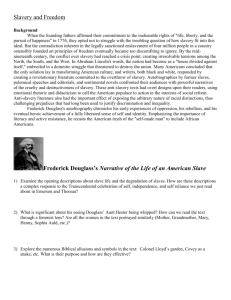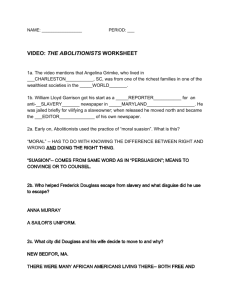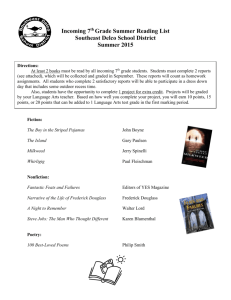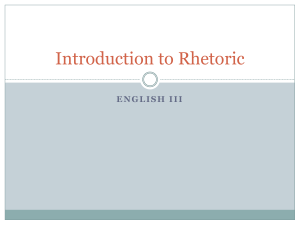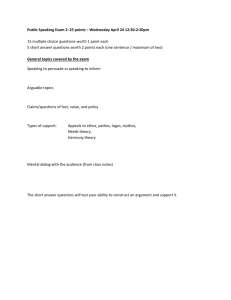KEY - EnglishIIIRockstars
advertisement
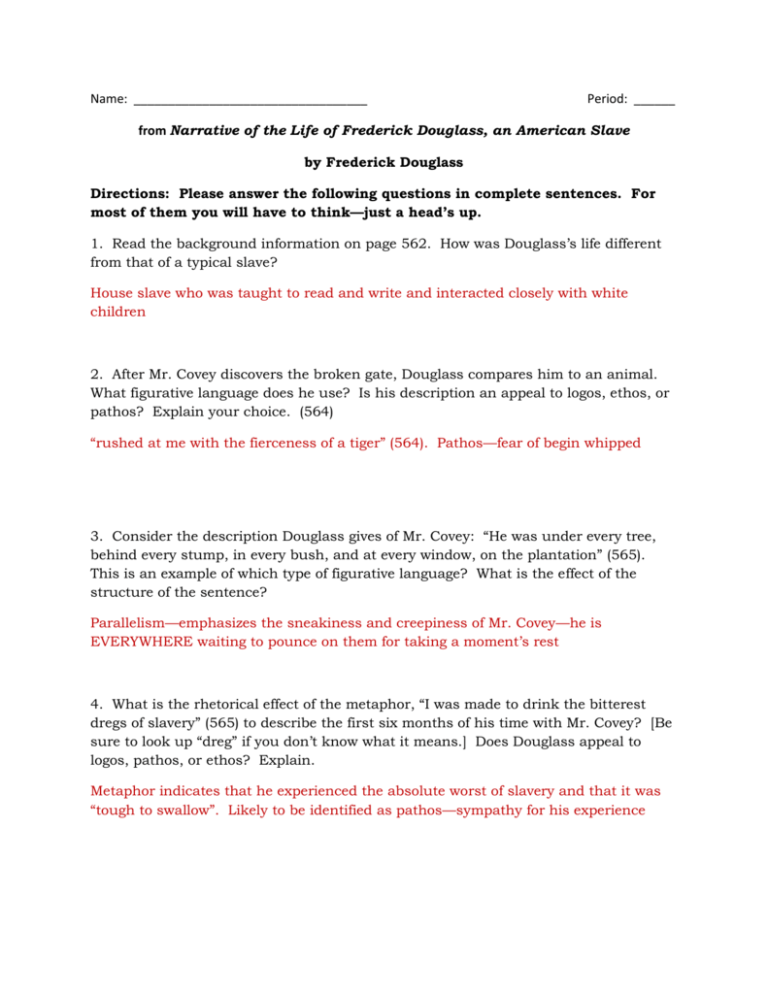
Name: __________________________________ Period: ______ from Narrative of the Life of Frederick Douglass, an American Slave by Frederick Douglass Directions: Please answer the following questions in complete sentences. For most of them you will have to think—just a head’s up. 1. Read the background information on page 562. How was Douglass’s life different from that of a typical slave? House slave who was taught to read and write and interacted closely with white children 2. After Mr. Covey discovers the broken gate, Douglass compares him to an animal. What figurative language does he use? Is his description an appeal to logos, ethos, or pathos? Explain your choice. (564) “rushed at me with the fierceness of a tiger” (564). Pathos—fear of begin whipped 3. Consider the description Douglass gives of Mr. Covey: “He was under every tree, behind every stump, in every bush, and at every window, on the plantation” (565). This is an example of which type of figurative language? What is the effect of the structure of the sentence? Parallelism—emphasizes the sneakiness and creepiness of Mr. Covey—he is EVERYWHERE waiting to pounce on them for taking a moment’s rest 4. What is the rhetorical effect of the metaphor, “I was made to drink the bitterest dregs of slavery” (565) to describe the first six months of his time with Mr. Covey? [Be sure to look up “dreg” if you don’t know what it means.] Does Douglass appeal to logos, pathos, or ethos? Explain. Metaphor indicates that he experienced the absolute worst of slavery and that it was “tough to swallow”. Likely to be identified as pathos—sympathy for his experience 5. Douglass writes that he was “tamed” by Mr. Covey. Why would Covey make this choice in diction? Emphasizes that he is treated like/become a beast 6. Consider the sentence: “My natural elasticity was crushed, my intellect languished, the disposition to read departed, the cheerful spark that lingered about my eye died; the dark night of slavery closed in upon me; behold a man transformed into a brute!” (565) This sentence includes examples of which types of figurative language? (3 total) What is the effect of this sentence? Personification within parallel structure; metaphor. Emphasizes the negative effects of slavery on him as a man beast 7. What prevented Douglass from taking his own life or Mr. Covey’s? Does this cause the audience to view Douglass as more credible (appeal to ethos)? Explain. Combo of hope and fear prevented him from suicide or murder; More credible—willing to share his dark thoughts; Less credible—weak and considered suicide/murder OR failed to act on his thoughts of suicide/murder 8. In the last paragraph on page 565, how does Douglass appeal to logos? Explain. How does this also develop his credibility? Explain. Provides specific details—“On one of the hottest days of the moth of August, 1833, Bill Smith, William Hughes, a slave named Eli, myself…”—evidence that is straightforward and factual; increases his credibility because he knows actual dates/full names 9. Mr. Thomas refuses Douglass’s pathetic plea for help. Are his reasons ethical, emotional, or logical, or a combination of them? Explain. Pathos—fear—“’get hold of me’” Logos—will lose a year’s wages Ethos—believes Mr. Covey will not kill D.glass 10. Douglass uses several examples of language to express the idea of “freedom” on page 570. Offer one example (quotation) and analyze the effect of Douglass’s language (diction/sensory details/figurative language) has on his meaning. “rekindled the few expiring embers of freedom, and revived witin me a sense of my onw manhood” “My long-crushed spirit rose, cowardice departed, bold defiance took its place” 11. Paraphrase the following sentence: “The gratification afforded by the triumph was a full compensation for whatever else might follow, even death itself” (570). Feelings/reward of standing up to Mr. Cove was fully worth anything that might follow, even death 12. What does Douglass allude to in the sentence, “It was glorious resurrection, from the tomb of slavery, to the heaven of freedom? [Be specific.] Is this an appeal to logos, pathos, or ethos? Explain. Jesus’s resurrection and ascension to Heaven as the son of God; pathos—if audience is religious; ethos—increasing credibility by referencing Christian text/education, also comparing his experiences to Jesus 13. What do you believe is Douglass’s primary purpose in writing this slave narrative? Explain. Share experiences as a slave; reveal the horrors and injustices of slavery; convince readers that a former slave was capable of intelligent speech, thought, and composition

